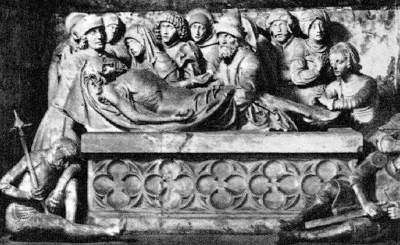Friendship improves happiness and abates misery,
by doubling our joy and dividing our grief.
Joseph Addison
Saying goodbye to this kirk and its people has turned out to be much harder than I had imagined.
I always knew it would be difficult. One doesn't put down a hundred months of roots and expect them to turn loose with hasty ease. But what has surprised me is just how strenuous a good goodbye can be, how much it takes out of a person. A colleague of mine recently wrote that "grief is the tax we pay on loving others." That makes sense to me right about now. It's probably why so many people in this life seem to "cut and run," because they intuitively understand that loving and just departures are hard work for the heart.
Still, it is a blessed work. If grief is indeed a tax then it is a levy well spent for me, a privilege upside-down, a measure of the bonds of friendship and partnership we have enjoyed over these years. Truth be told, I am honored to ante up here at the end. After all, my belief is that such bonds not-easily-undone are part and parcel of the gospel.
During my time as your preacher, I have tried to make a business out of preaching that very point: bonds with Jesus Christ necessarily and happily create bonds among his people. You can't have Jesus without his people, and 9 times out of 10, why would you want to? If there has been a text that has guided me in this near-decade theme, surely it has been 1 Thessalonians 2:8—We loved you so much that we were delighted to share with you not only the gospel of God but our lives as well, because you had become so dear to us. (NIV)
I remember well the first time I became acquainted with this little sentiment, buried in the preface to one of Paul's major epistles. It was in seminary, in an upstairs classroom, around a table with several classmates and a theologian. The topic was "evangelism in pastoral ministry," and I had just been complaining about all the negative baggage the term "evangelism" carried for me at the time.
During my freshman year at a large university, I had joined a Christian ministry group whose favorite activity was to scour the campus dormitories knocking on doors and passing out tracts. I had joined mostly for the fellowship, but was quickly recruited for the weekly canvas. I hated every minute of it, mostly because I never could shake the feeling that we could have just as easily been selling dishwashing powder, or insurance, or drugs. It always felt to me as though Jesus—the sacred and saving Jesus that had been so interwoven into my life since infancy—was simply to us a commodity, one more product to peddle door to door. We'd gather in our monthly meetings and compare numbers, everyone patting themselves on the back for the "incredible witness" they were to their fellow students.
If that was "evangelism," then I had already had enough. But to my astonishment, our theologian—a professor of evangelism, no less—agreed with my assessment. He related his own similar experience from another era, his taking place on a beach somewhere. And when I asked in frustration what the proper antidote to all this was, he pointed me to 1 Thessalonians 2:8. "For Paul," he explained, "the gospel must always be shared in the context of genuine love, amidst growing relationships. We share the gospel; we share our lives. In the most faithful of circumstance, the two always go hand in hand."
I had never had someone put it that way before; moreover, I had never noticed Paul's little litmus test for proper faith-sharing—this little text, buried in the Thessalonian letter. Until that day, I had assumed that one had to throw the evangelism-baby out with the bathwater-experience of my undergraduate days. As such, Paul's expression of affection to the Thessalonian Christians was a Godsend to me. A new light turned on my in my theological head; suddenly I could imagine what, in fact, a robust Christian community looked like: As we share the news of Jesus, we share our lives—and vice versa. To paraphrase Joseph Addison: The grief we lay at the cross of Christ is divided among the saints who bear it with us; the joy we experience in the news of God's Easter-grace is doubled by the gift of sharing it with others. "Friendship improves happiness, and abates misery." Relationships protect the news about Jesus from collapsing into yet another commodity for selling and consuming; the gospel truth keeps our common church relationship from decaying into yet another run-of-the-mill human organization. And so it goes, hand in hand.
In more than 400 sermons over nine years, we've listened together to a lot of Biblical texts, we've collectively covered a lot of holy ground. But this New Testament theme—sharing with you not only the gospel of God but our lives as well—has certainly woven itself into many a sermon on many a Sunday. As such, it seems like a fitting place to end.
I want you all to know what an inestimable privilege it has been to be your preacher and teaching elder over these many years, to be a steward among you of the good news of Jesus' life, death, and resurrection. But I also want you all to know what a blessing your friendship has been to me and my family—your support, your concern, your responsiveness. On both fronts—preaching and personal—you have doubled my joy.
Altavista Presbyterian Church,
I have loved you so much that it has been my delight to share with you not only the gospel of God but my life as well, and the life of the Hawkins family, because you had become so dear to us.
I could not have said it better myself.

